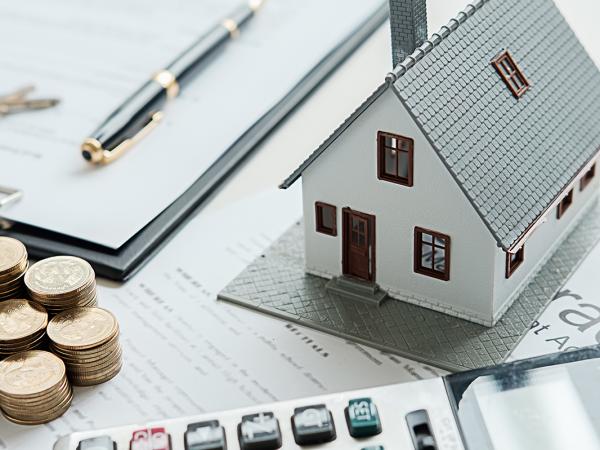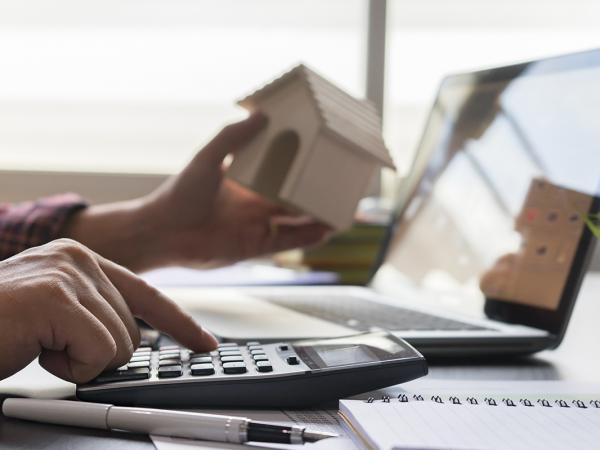Property income
Do you charge rent to someone else for living in a property that you own? Or do you sub-let a room in your house to a lodger? Having income from property, also known as rental income, means you need to consider your tax position. You may need to tell HMRC about it and possibly pay some tax if you make a profit.

Content on this page:
Introduction
Property income is generally any income from land or buildings, including rental income from a flat or house or from part of a flat or house, such as a room or a parking space. Income from other sources, for example a caravan, a caravan pitch or a houseboat, may also be included.
Property income does not include income from a trade, for example farming, running a hotel or carrying on an unrelated business, for example arts and crafts or hairdressing, from home. Profits relating to a trade are taxable as self-employment income. You can find out more in our pages on self-employment.
Tax
Property income profits are taxable unless they fall within one of the specific reliefs or allowances. If the reliefs or allowances do not apply to your income, then you will need to pay income tax on any profits – broadly, property income less allowable expenses. We discuss the available reliefs and allowances below.
‘Income’ is normally the rent due from the tenants. Payments in kind are also taxable. For example, if a tenant cannot afford to pay rent one month but offers to paint the outside of the house instead of paying rent, the value of the work they have done could be considered a taxable payment in kind.
For more information on the calculation of rental income, see our page Working out property income.
Rents are not usually taxed at source – unless you live abroad and are a non-resident landlord. This means you may have to pay tax direct to HMRC. See Reporting property income to HMRC for more information.
Overseas property
Whether or not you need to pay UK tax on income from an overseas rental property depends on your circumstances. If you are UK resident, then you generally have to tell HMRC about your income from overseas property.
Find out more on residence and how foreign income is taxed in our International section.
When calculating any amount that may be taxable in the UK, you broadly follow the rules that apply to UK income (that is, property income less allowable expenses). You should be able to use the property allowance (discussed below) if you wish. To the extent there is a UK tax liability, you might be able to claim relief against your UK tax bill if you have paid foreign tax on the rental income too. Again – we recommend that you read the guidance in our International section, including our page about Double taxation.
Importantly, income from overseas property is not added together with UK property income and if you complete a self assessment tax return you have to show it separately as foreign income.
Rate of tax
If your property income is taxable, you will pay tax at the relevant income tax rate, after employment income and other earned income, such as self-employment profits or pension income, has been taken into account.
For the bands of income which are taxable at each rate above, see our Income tax page.
If you are a Scottish taxpayer, you will pay tax at the appropriate rates according to the Scottish rates and bands of income tax. This is the case even if the property that is rented out is not in Scotland but is in another part of the UK.
For 2024/25, Welsh taxpayers pay tax using the same rates and bands as other non-Scottish UK taxpayers.
As property income is treated as ‘unearned’ income, you will not normally need to pay National Insurance contributions (NIC) on it. In some situations, you might be treated as trading – for instance if you are running a bed and breakfast or hotel type business. In such cases, you would need to pay the appropriate NIC. If the business is not run as a company, this would mean paying self-employed NIC.
Allowances and reliefs
Letting out a room in your home
‘Rent-a-room’ relief may be available for the first £7,500 of income arising from renting out a room in your main residence. If the rents are below £7,500 per year, the income is tax-free. If the property is owned by more than one person, the rent-a-room relief available is £3,750 per person.
You can find more information on our Rent-a-room page.
Furnished holiday lettings
There are special rules for furnished holiday lettings – property which is let out on a short-term, usually seasonal, basis to tourists and visitors. The income is still taxable but is subject to certain special rules, which are not discussed further here. HMRC produce a helpsheet (HS253) which you might find useful if you have this type of income.
In Spring Budget 2024 the government announced its intention to abolish the furnished holiday letting regime, with effect from 6 April 2025.
Property allowance
A property allowance of £1,000 is available to individuals who receive property income. There is more information below.
It is not possible to use both rent-a-room relief and the property allowance against the same property income.
Full relief
If your total rental income (before expenses) in 2024/25 is less than or equal to £1,000, you do not have to declare it to HMRC and you do not have to pay any tax on it. You do not need to do anything for this to apply – it will apply automatically.
However, you can choose to be taxed on your property income in the normal way if you wish, for example, if your expenses are greater than your rental income (so that you can claim the rental loss). You cannot claim any loss or deduction for property expenses if you use the property allowance relief.
Partial relief
If your total rental income (before expenses) in 2024/25 is more than £1,000, you can choose, when calculating your taxable rental profits, between deducting the property allowance from your rental income, and calculating your taxable rental profits in the normal way, by deducting actual expenses.
The best option will usually depend upon the level of expenses you have. If there are few expenses, you may be better off with partial relief. Otherwise, it may be better to claim actual expenses. You will probably also wish to claim actual expenses if this produces a rental loss. You cannot claim any loss or deduction for actual allowable expenses if you elect to use the property allowance. You can read more about rental losses on our page Working out property income.
Elections
You can choose whether or not to use the property allowance for each tax year separately, as each election applies only for that tax year.
If you wish to opt out of full relief, you must make an election for it not to be given by 31 January, in the second year after the end of the relevant tax year. For example, if you wish to opt out of full relief for the tax year 2024/25, you must make the election by 31 January 2027.
If you wish to use partial relief, you must make an election by 31 January, in the second year after the end of the relevant tax year. For example, if you wish to use partial relief for the tax year 2024/25, you must make the election by 31 January 2027.
In practice, you would usually make an election by ticking the relevant box on your self assessment tax return. Filing your tax return by the usual filing deadline will be accepted by HMRC as the relevant notification.
HMRC’s information for the public on the property allowance can be found on GOV.UK.
More information
GOV.UK contains a guide to income tax when you let out a property.
HMRC’s technical guidance can be found in their Property Income Manual.
For more general information on your responsibilities if you are letting out a property in England and Wales, visit GOV.UK. If you are a landlord in Scotland, see mygov.scot. If you live in Northern Ireland, see nidirect.



